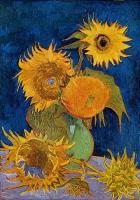Poem Kisses by Gabriela Mistral: analysis and meaning
Gabriela Mistral is one of the most important Chilean poets. She was the first Latin American author, and the fifth woman to receive the Nobel Prize, in 1945, 26 years before her compatriot, Pablo Neruda.
In her poetry, the simple but passionate language stands out, which seeks to express deep emotions that are in conflict. The Anthology of the commemorative edition of the Royal Spanish Academy states that her writing:
(...) weaves in counterpoint a life full of tragic passion; of loves that know no borders; of life experiences limit; of radical commitment to her motherland and to the dream of America; compassion, in the etymological sense of the term - shared feeling and experience - with the disinherited and oppressed.
The poem "Kisses", besides being one of the most popular, exemplifies the poetic spirit of Gabriela Mistral. The poem deals with the rugged theme of attraction and the contradictions of love.
Kisses
There are kisses that they pronounce by themselves
the condemnatory love sentence,
there are kisses that are given with the look
there are kisses that are given with memory.
There are silent kisses, noble kisses
there are enigmatic kisses, sincere
there are kisses that only souls give each other
there are kisses forbidden, true.
There are kisses that burn and hurt,
there are kisses that take away the senses,
there are mysterious kisses that have been left
a thousand wandering and lost dreams.
There are troublesome kisses that enclose
a key that no one has cracked,
there are kisses that engender tragedy
how many brooch roses they have defoliated.
There are scented kisses, warm kisses
that throb in intimate longings,
there are kisses that leave traces on the lips
like a field of sun between two ice.
There are kisses that look like lilies
for sublime, naive and for pure,
there are treacherous and cowardly kisses,
there are cursed and perjured kisses.
Judas kisses Jesus and leaves a print
in his face of God, the felony,
while the Magdalena with her kisses
piously fortify her agony.
Since then in the kisses it beats
love, betrayal and pain,
in human weddings they look alike
to the breeze that plays with the flowers.
There are kisses that produce ravings
of fiery and crazy loving passion,
you know them well, they are my kisses
invented by me, for your mouth.
Llama kisses that in printed trace
they carry the furrows of a forbidden love,
storm kisses, wild kisses
that only our lips have tasted.
Do you remember the first one??? Indefinable;
covered your face with livid blushes
and in spasms of terrible emotion,
your eyes filled with tears.
Do you remember that one afternoon in crazy excess
I saw you jealous imagining grievances,
I suspended you in my arms... a kiss vibrated,
and what did you see after??? Blood on my lips.
I taught you to kiss: cold kisses
they are of impassive heart of rock,
I taught you to kiss with my kisses
invented by me, for your mouth.
Analysis
The poem redefines what a kiss can be, and through this attempt it tells us about passions, loyalty, romance, carnal and platonic love and, in general, the emotional ties that unite us.
It is made up of thirteen stanzas with hendecasyllable verses where the consonant rhyme prevails.
The first six stanzas, characterized by the anaphora, question the usual meaning of kisses. The first thing we imagine when we think of the word kiss is the physical act of kissing. The poem begins by opening the imagination to everything that could also be associated with a kiss, and that points more than to the action, to the intention behind the kiss: "there are kisses that are given with the look / there are kisses that are given with the memory".
The poem contrasts adjectives and images that we do not normally associate, and many times they present contradictory ideas. Thus, the "enigmatic" that is associated with what it hides, is opposed to the "sincere". Also the "noble" kiss, or the platonic kiss "that only souls give each other", and that refer us to respect, love fraternal love, from parents to children, and even to spiritual and ethereal love, the forbidden love is contrasted, which refers to the lovers.
Through the "Kisses", a panorama of human passions is presented that outlines the close relationship between love and hate. The poem recreates the different conflicting forces in opposition that, as the critic, Daydí-Tolston points out, cross Mistral's poetics:
"Love and jealousy, hope and fear, pleasure and pain, life and death, dream and truth, ideal and reality, matter and spirit, compete in his life and find expression in the intensity of his well-defined poetic voices "Santiago Daydi-Tolson. (Own translation)
Fatal love
Although "Kisses" tells us about all kinds of passions and relationships, not just romantic ones, the poem highlights fatal love.
She presents the vision of love as condemnation, in which no one chooses or has any power over who they love. The forbidden love that, with a lot of mischief, the author associates with the "true" one stands out especially, and It is also one of the most fiery: "Kisses of a flame that in a printed trace / carry the furrows of a love forbidden ".
Also, the ease with which love turns into betrayal, hatred and even violence stands out. The blood on the lips is the proof of the rage and fury of jealousy:
Do you remember that one afternoon in crazy excess
I saw you jealous imagining grievances,
I suspended you in my arms... a kiss vibrated,
and what did you see after??? Blood on my lips.
Poetic voice: women and feminism
Although Gabriela Mistral has had an ambiguous position regarding the feminist movement, it is very interesting to analyze her poetic voice that necessarily defines the feminine posture of the woman of her weather.
The subjective poetic voice that accounts for the individual does not appear until the ninth stanza. Here a woman rebels who finds herself in passion:
There are kisses that produce ravings
of fiery and crazy loving passion,
you know them well, they are my kisses
invented by me, for your mouth.
The woman, in the poem, rebels against the taboo of female sexuality, and especially of the desire of women. In this sense, the poem is a pioneer of the feminist movement that had its heyday in the 1960s.
Furthermore, the female poetic voice finds its authorship, creativity and footprint in the world, navigating corporeality, and all the passions that it implies:
I taught you to kiss: cold kisses
they are of impassive heart of rock,
I taught you to kiss with my kisses
invented by me, for your mouth.
I want to emphasize that in the poem it is the woman who teaches her lover to kiss, and it is implicitly suggested that without her there would be no warmth, nor emotion, contrary to the patriarchal and conservative idea that it is up to the man to be the expert in sexuality.
If you like this poet, I invite you to read 6 fundamental poems by Gabriela Mistral.

About Gabriela Mistral
Gabriela Mistral (1889-1957) was born into a humble family. She supported herself and her family from the age of 15 working as a school teacher, until her poetry began to be recognized.
She worked as an educator, and diplomat in Naples, Madrid, and Lisbon. She taught Spanish Literature at Columbia University, among other important institutions. She had an important role in Chilean and Mexican education.
She was awarded PhDs honoris causa she from the universities of Florence, Guatemala and Mills College. In 1945 she received the Nobel Prize for Literature.



